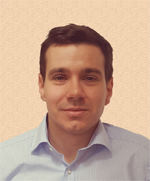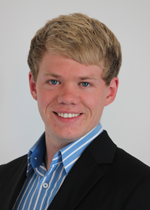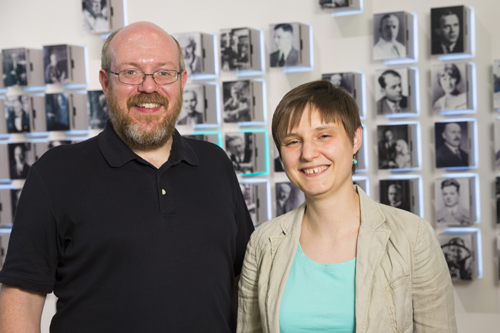
|
Two Berlin Science Prizes for the BMS
Ziegler, who is Chair of the Berlin Mathematical School, a professor of mathematics at the FU Berlin, and honorary professor at the TU Berlin, is nationally and internationally recognized for the remarkable breadth of his mathematical knowledge, and for his services to research in the areas of discrete mathematics, geometry and topology. Moreover, his reputation as a role model for young scientists, scholars and students precedes him. At the awarding ceremony, Mayor Müller acknowledged Ziegler as an excellent mathematician and impressive communicator, and President of the European Research Council (ERC) Prof. Dr. Jean-Pierre Bourguignon was proud to emphasize in his laudation that Ziegler is the second ERC laureate of this prestigious award. The Berlin Science Prize is awarded in recognition of outstanding achievements in science and research in Berlin. The prize money of 40,000 euros benefits the researcher’s institution, and one of its key uses is to support Berlin’s continued economic development. Ziegler’s other awards and honors include the Leibniz Prize (2001), the Communicator Award (2008), an ERC Advanced Grant (2010) and the Hector Science Award (2013). He is on the board of the Berlin-Brandenburg Academy of Sciences, is a member of the German National Academy of Sciences Leopoldina and the National Academy of Science and Engineering acatech, and he is also a Fellow of the American Mathematical Society. The awarding ceremony, which took place at Berlin’s “Rotes Rathaus“, included the Young Researcher Prize. This year it went to Dr. Myfanwy Evans, who is a BMS postdoctoral faculty member and Emmy Noether Research Group Leader at the TU Berlin. Evans, who hails from the Australian capital of Canberra, works at the interface between mathematics and physics. The prize, worth 10,000 euros, honors an innovative approach to research in a field that offers particular potential for Berlin’s scientific and economic future. Many congratulations to Günter and Myf! Written by S. E. Sutherland-Figini Source: FU Berlin
Career Day 2017: Scientific Life Balance
In the afternoon, there was a podium discussion with experts and decision-makers, who are active in the areas of science policy and research funding, and come from both the private and the academic sector. The aim was to provide an opportunity for additional discussion and suggestions at a more general level. Source: www.geo-x.net/career-day-2017/
First BMS - BGSMath Junior Meeting in BarcelonaIn their rich, diverse and international mathematical environments, the Berlin Mathematical School (BMS) and the Barcelona Graduate School of Mathematics (BGSMath) share the common goal of striving for excellence in their doctoral and postdoctoral training programs. To kick off the new collaboration between these two graduate schools, the first BMS - BGSMath Junior Meeting was held in Barcelona on 9 and 10 October 2017. The BMS and BGSMath have declared their intention to cooperate together in initiatives aimed at promoting the mobility of and exchange between students and faculty members by way of events such as the Junior Meeting; joint summer schools; mutual visits by advanced students and postdocs of each institution; and other scientific activities. The ultimate goal is to create strong scientific exchange, strengthen research collaboration between the respective math communities, and enhance the multicultural environment of both graduate schools.
Written by S. E. Sutherland-Figini Sources: BMS Phase II student’s 3D models are winners
Created using sturdy, metallic-looking paper, the cut-outs for the models can be produced in large numbers using a laser cutting technique. The models are then put together by the users themselves and depict mathematical geometries with so-called multiple coverings. These are geometric analogies to the weaving process used in the production of cloth. By introducing multi-coverings, the models become both more stable and mathematically interesting. The models presented depict platonic solids, double covered, but the method can be applied to any geometrical model. Potential customers for Double Cover’s winning idea include teachers, science workshop organizers and private individuals. The other team members are the former BMS vice chair and head of the Mathematical Geometry Processing group Prof. Dr. Konrad Polthier, technical staff member Ulrich Reitebuch and student assistant Kevin Guo. The “Research to Market Challenge” is a competition for research-based product and business ideas and is open to members or alumni of the FU Berlin, among others. As well as prize money in the sum of 1500 euros, the team has been offered the chance to take part in a one-day workshop on business model development, coaching on how to successfully present their idea, and personal feedback by experts. No sooner had Martin accepted this prize with his team on 18 July 2017, than he and some members of his research group were awarded with another prize! On 10 August 2017 in Tokyo, Japan, the winners of this year’s Asian Digital Modeling Contest (ADMC) were announced: Martin, Konrad, and Ulrich were jointly awarded one of the two ADMC2017 Awards for Excellence for their model “Chladni Towers”.
As a member of the Mathematical Geometry Processing group at the FU Berlin, Martin is currently working on his PhD under the supervision of the former BMS vice chair Prof. Dr. Konrad Polthier. Martin's research interests include the acquisition of point sets via 3D-scanning as well as their processing. With regards to efficiency, he is interested in nearest-neighbor algorithms and corresponding data structures. Many congratulations to Martin and the other members of his team for their success! Top rankings for Berlin universities in 2017According to the "Times Higher Education (THE) World University Rankings", the Humboldt-Universität zu Berlin (HU), the Freie Universität Berlin (FU) and the Technische Universität Berlin (TU) belong to the top seven universities in Germany. Ranked 4th, 5th and 7th, respectively, they each claim higher positions in comparison with the results of previous years. 20th BMS Kovalevskaya LunchE On 2 June 2017, the 20th BMS Kovalevskaya Lunch took place with Prof. Sujatha Ramdorai as the twentieth special guest invited to share her experience as a woman mathematician with twenty participants from the BMS. In celebration of this milestone, everyone in attendance was given a small gift from the BMS in the form of a USB stick. Sujatha Ramdorai is an algebraic number theorist and, over lunch at the Urania Berlin, she shared the story of her desire to study mathematics and outlined her career success to date, which includes being a member of the Scientific Advisory Council to the Prime Minister of India for a period of five years. The BMS Kovalevskaya Lunch, held once a semester since 2007, aims to give female students the opportunity to talk to an outstanding female mathematician and to exchange experiences as women in the field of mathematics. Previous Sonia Kovalevskaya Colloquium guest speakers can be found on this page of our website. The BMS is committed to providing an outstanding environment where women are able to thrive in mathematics. In 2016, the BMS student body was over 30% female, but the goal of the BMS is to achieve a 50% representation of women among its students. As well as the Kovalevskaya Lunch event, the BMS strives to provide positive role models for women via the BMS faculty and postdoc faculty members, BMS mentors, board members, guest speakers and visitors too. In addition, the BMS awards the Hilda Geiringer Scholarship to outstanding female PhD students in recognition of their achievements to date and to support their future mathematical research endeavours. Hilda Geiringer’s daughter, Magda Tisza, validated the efforts of the BMS in fostering women mathematicians with her comment: "The stellar record of some of your scholarship selections is impressive." BMS welcomes a student delegation from Atlanta
On Tuesday 23 May 2017, the BMS welcomed a delegation of 20 undergraduate students and three faculty members from Morehouse College and Spelman College, two American universities situated in Atlanta, Georgia. This event aimed to give the visiting students and faculty a chance to connect with their counterparts in Germany, and gain first-hand exposure to prospective careers and research opportunities in the field of mathematics. BMS Deputy Chair, Prof. Dr. John Sullivan, began by giving a presentation about the BMS, its PhD Program, and about the mathematics landscape in Berlin in general. This was followed by talks from three BMS Phase II students, who each presented their own research projects. Patrick Gelß, based at the FU, gave a talk on “The tensor-train format and its applications - Modeling and analysis of chemical reaction networks, catalytic processes, fluid flows, and Brownian dynamics”. Ana Djurdjevac, also based at the FU, presented her research on “Random PDEs on evolving hypersurfaces”. Finally, using material from his PhD project, Carlos Echeverría Serur, based at the TU, gave a talk entitled “On the solution of linear systems arising from Shishkin mesh discretizations”. Carlos said he hopes that all the talks will encourage some of the American students to come to Berlin for their graduate studies.
Jürg Kramer appointed EMS Committee Chair of Education
The European Mathematical Society (EMS) was founded in 1990 in Madralin, Poland. Its purpose is to further the development of all aspects of mathematics in Europe, in particular to promote research in mathematics and its applications. The goal of the EMS Committee for Education is to report and act on educational issues that are of concern to EMS members without infringing on the responsibilities of the national mathematics societies. Jürg Kramer completed his PhD in Basel and habilitation at the ETH Zürich. He has held a professorship of mathematics at the HU Berlin since 1994, and has been a member of the BMS Board since 2006, acting twice as the BMS chair. His research interests lie in arithmetic geometry and the theory of automorphic forms, and he is particularly active in the professional education and training of mathematics teachers. His tenure as EMS Committee Chair of Education runs for four years from 01.01.2017 to 31.12.2020. Congratulations Jürg on your new appointment! BMS Phase II students appointed GAMM JuniorsBMS Phase II students Martin Genzel and Benjamin Unger were appointed GAMM Juniors by the Gesellschaft für Angewandte Mathematik und Mechanik (International Association of Applied Mathematics and Mechanics) in December 2016. GAMM was founded in 1922 by Ludwig Prandtl and Richard von Mises to promote scientific development in all areas of applied mathematics and mechanics. The association fosters international cooperation and currently comprises over 2000 members. Each year, ten new GAMM Juniors are selected in recognition of their outstanding achievements in their graduate and/or doctoral theses in the field of applied mathematics or mechanics. To be eligible, these young scientists must be under the age of 32 at the time of application and have a final thesis not older than two years. The successful candidates are invited to become active in GAMM for three years as ambassadors of young scientists in the fields of applied mathematics and mechanics, representing these disciplines within the scientific community and society. During this time, they are exempt from GAMM membership fees and are offered additional financial and moral support in their scientific endeavors. With an overlap in the term of office of the thirty members, their technical and organizational knowledge can be passed on to succeeding generations of GAMM Juniors. Current GAMM Juniors include BMS Phase II students Sandra Keiper and Philipp Petersen. BMS alumni Agnieszka Miedlar and Robert Altmann were GAMM Juniors until 2014 and 2016, respectively.
Congratulations to both Martin und Benjamin! Spectacular work of BMS Dirichlet Postdoc Maryna ViazovskaHenry Cohn reports about the spectacular work of the BMS Dirichlet Postdoc Maryna Viazovska in Notices of the AMS:
|


















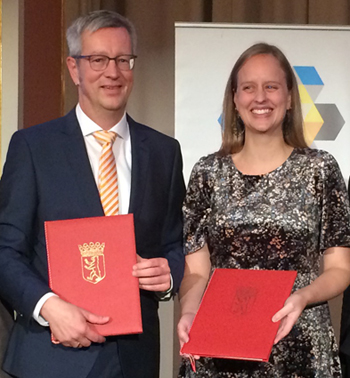 On 7 November 2017,
On 7 November 2017, 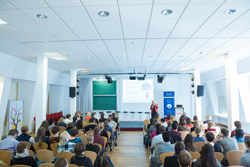 On Friday 20 October 2017, in collaboration with
On Friday 20 October 2017, in collaboration with 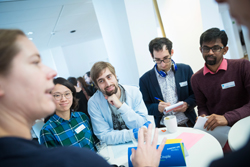 The topics at each booth ranged from how to develop effective time management strategies, or find a good job in the private sector, to the issues couples face such as finding a job in the same city, or how scientists with families achieve work-life balance at home or abroad.
The topics at each booth ranged from how to develop effective time management strategies, or find a good job in the private sector, to the issues couples face such as finding a job in the same city, or how scientists with families achieve work-life balance at home or abroad.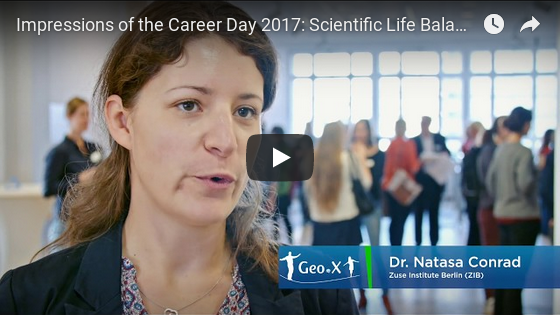
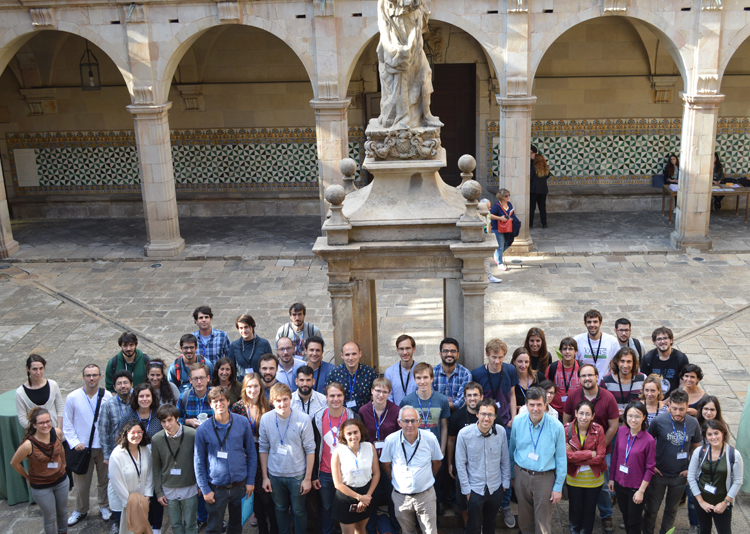
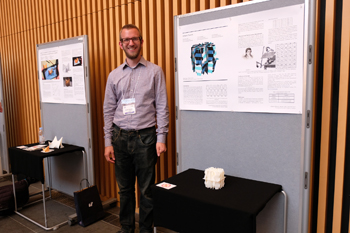 Martin Skrodzki
Martin Skrodzki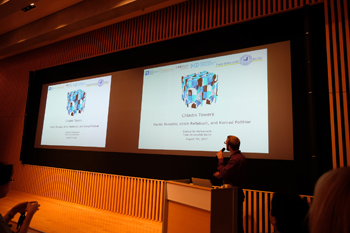 The aim of the ADMC is to encourage the creation of three-dimensional mechanisms and objects in innovative environments via 3D printing technology. The competitors were asked to submit an original design that could be created using a 3D printer. Out of 27 competitors, eleven finalists were invited to present their designs at the 2017 Asian Forum on Graphic Science in Tokyo. Upon announcing “
The aim of the ADMC is to encourage the creation of three-dimensional mechanisms and objects in innovative environments via 3D printing technology. The competitors were asked to submit an original design that could be created using a 3D printer. Out of 27 competitors, eleven finalists were invited to present their designs at the 2017 Asian Forum on Graphic Science in Tokyo. Upon announcing “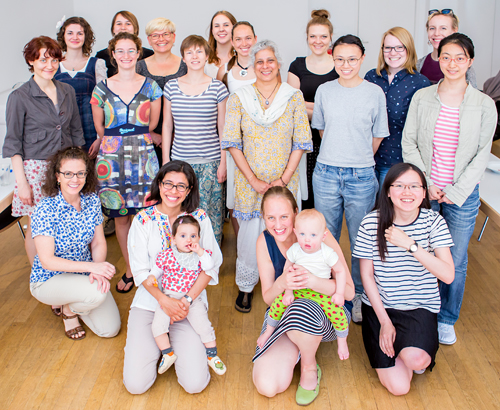 ach semester, the BMS designates one of the
ach semester, the BMS designates one of the 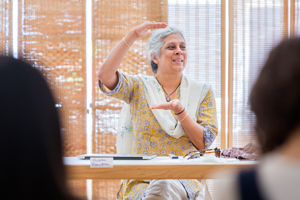 Sujatha is currently a professor of mathematics at the University of British Columbia in Canada.
Sujatha is currently a professor of mathematics at the University of British Columbia in Canada. 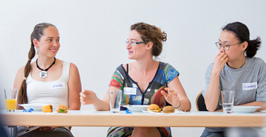 At this informal event, students have the chance to discuss the issues that directly impact female mathematicians and their careers, such as job opportunities, parenthood and work-life balance. Phase I student Yingying, who took part in the Kovalevskaya Lunch for the first time, said that the meeting with Sujatha gave her more motivation to continue doing mathematics and to contribute to the support of women in this field. She added that she was grateful to have been given the chance to meet Sujatha in person.
At this informal event, students have the chance to discuss the issues that directly impact female mathematicians and their careers, such as job opportunities, parenthood and work-life balance. Phase I student Yingying, who took part in the Kovalevskaya Lunch for the first time, said that the meeting with Sujatha gave her more motivation to continue doing mathematics and to contribute to the support of women in this field. She added that she was grateful to have been given the chance to meet Sujatha in person. 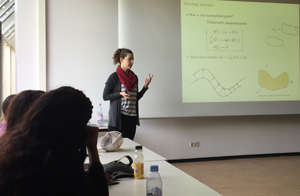
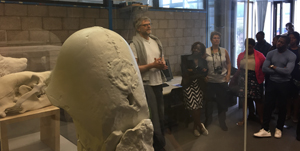 Following the BMS presentations, the delegation then visited the TU Berlin's
Following the BMS presentations, the delegation then visited the TU Berlin's 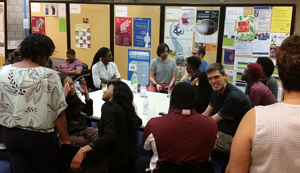 This event was part of the
This event was part of the 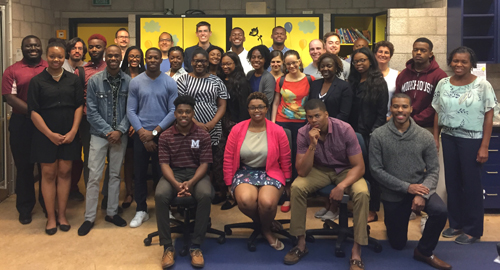
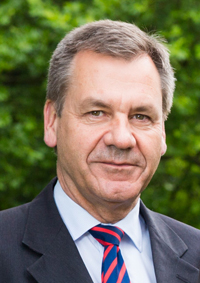 The BMS would like to congratulate
The BMS would like to congratulate 